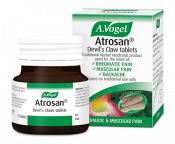Why does chronic pain make you tired?
Fatigue that is worsened by pain can affect motivation and mood. It can even cause physical symptoms such as heavy, achy limbs. Of course, not everyone will experience such severe fatigue due to pain; however, fatigue and chronic pain are closely connected nonetheless. There are a few reasons, in particular, that may cause pain to contribute to fatigue.
- Pain affects sleep
- Pain is exhausting
- Pain can be connected to inflammation
- Pain medication can cause side effects
- Pain can reduce activity levels
1. Pain affects sleep
If pain affects your ability to sleep well at night, this is likely to impact how energised and alert you feel during the day. Pain can be exacerbated by an awkward sleep position or may simply cause such discomfort that you wake several times a night.
Interrupted sleep means you are less likely to reach the deep stages of sleep which we need in order to feel rested and to allow restorative processes to occur. Without this, we are likely to feel quite groggy come the next day!
Also, a connection has been identified between sleep disorders and chronic pain. Insomnia, for example, has been seen to increase the risk of chronic pain in people who haven't previously experienced any issues.1
2. Pain is exhausting
There are no two ways about it, pain is simply exhausting! Whether it is keeping you up at night or it is a symptom of a particular condition such as fibromyalgia.
Fatigue caused by fibromyalgia is especially common. It is not entirely clear why this symptom occurs, though the fact that this condition is often accompanied by stress or anxiety could have a part to play. There is also the added issue that, once again, the pain caused by fibromyalgia can interrupt sleep.
Long-term pain is also very likely to wear you down, whether it's caused by a diagnosed issue such as arthritis or something more general such as an old injury. Feeling exhausted can then make the pain worse.
3. Pain can be connected to inflammation
Often inflammation accompanies pain and this too can have an influence on how tired you feel.
Inflammation is an attempt by the body to address an infection or injury by sending blood or fluid to the area. The result of this is redness, swelling, heat and pain. It may also lead to fatigue, especially if inflammation persists over a period of time, as is the case with conditions such as arthritis.
4. Pain medication can cause side effects
Drowsiness or fatigue may be a side effect of specific medications used to address pain. However, this problem can also be felt when taking medications for other conditions such as depression.
You should have a conversation with your doctor if this particular point is something you are worried about.
5. Pain can reduce activity levels
If you are dealing with pain on any level, it is very likely to impact activity levels. Feeling unable to participate in exercise is one reason, though day-to-day activities that get us up and moving about may also become more challenging to complete when suffering from pain. The result of this is reduced movement which can go on to impact energy levels.
In a 2017 study, for example, it was found that higher levels of physical activity and lower levels of sedentary time were associated with lower pain and fatigue in women with fibromyalgia.2 Additionally, more vigorous physical activity was connected with lower general and physical fatigue, further suggesting that movement is crucial in the management of this issue.
Dealing with pain and fatigue
To manage both pain and fatigue, here are some top tips.
Eat well – nutrients like magnesium are helpful for both pain and energy levels. You'll find this in a selection of fresh foods such as spinach, banana and pumpkin seeds.
Address pain – severe pain may need to be managed by a doctor. A physical therapist may also be able to recommend specific exercises to help with your issues. Additionally, you could turn to natural remedies. Arnica Gel is one I often recommend applying before you go to bed at night to help with achiness or discomfort.
My Top Tip:

- Pain relief for stiff neck and shoulders
- Pain relief for other muscle aches and pains
- For sporting injuries such as joint sprains & strains
- Made from extracts of freshly harvested Arnica
- Can be used with other medicines
"Very impressed with the arnica gel."

Look at sleep position – sleep position can help to determine how well you sleep and how severe your pain is. The best sleep position will really depend on where your pain is located so take a look at my blog on sleep positions for achy muscles and joints for a bit more advice.
Practise gentle exercise regularly – exercise can bring some pain relief and boost energy levels but it is really important to take things slowly. Try short walks or a little bit of yoga. If you can gradually increase the amount you do, this will be beneficial. However, aim for 15-20 minutes a day as a starting point and see how you get on.
Get a good sleep routine – finally, help your body towards a more restful night's sleep by allowing yourself time to unwind at night. I am sure you don't need me to tell you what is and is not a relaxing activity to participate in but, as a reminder, any kind of technology is likely to keep you awake if used in the hour before you go to bed. So, replacing an hour of television-watching or internet-scrolling with non-technological activities such as reading, drawing or bathing may be beneficial for your sleep.





 Looking for a treatment to relieve pain in conditions such as muscle aches or pains, stiffness, rheumatic pain or after sporting injuries?
Looking for a treatment to relieve pain in conditions such as muscle aches or pains, stiffness, rheumatic pain or after sporting injuries?

